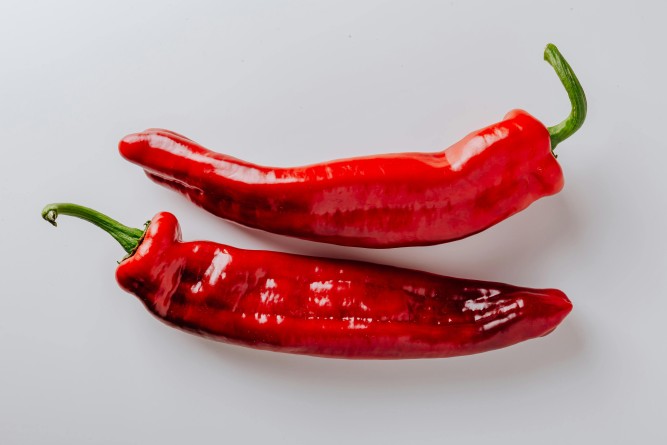No exclusive rights over Hot Mix: Delhi court denies relief in trademark infringement suit
31 October 2024

A district court in Delhi refused to grant an injunction in the present suit concerning the infringement of rights under the trademark SHAH HOT MIX/SHAH (label). The plaintiff, Sunit Shah, proprietor of M/s Shah Namkeen, had filed a suit against the defendant, M/s Sunshine Food Products, seeking permanent injunction regarding infringement and passing off trademark and copyright regarding the mark/label.
Facts of the case
The plaintiff has been in the business of confectionery-related items such as cakes, puffs, biscuits, namkeen (a salty or savoury snack), etc., since 1977. The plaintiff has been operating its business under its trademark/label SHAH/SHAH NAMKEEN/SHAH HOT MIX (label) openly and extensively without any interruption since 1977. Later, the plaintiff entered into a partnership with his brother, and on August 31, 1989, they were granted registration of trademark SHAH in Class 30. The partnership was dissolved in 1995, and the plaintiff became its sole proprietor and continued the business under the trademarks. Later, the plaintiff applied for registering the trademark/label SHAH HOT MIX in 2012, which now stands registered.
The plaintiff became aware of the defendant's use of an identical mark in April 2022 concerning identical goods, i.e., namkeen. The plaintiff stated that the defendant, a partnership firm, had started using identical packaging under a similar trademark/label on a huge scale in various states of India, including Delhi. The plaintiff alleged that the plaintiff's and defendant's goods and the trade channels are identical. The plaintiff further alleged that the impugned packaging was identical and deceptively similar to the plaintiff's overall trademark/trade name. The plaintiff stated that they had not given the defendant any kind of permission/consent to use the impugned mark/label, similar expressions and/or artistic works. Accordingly, the plaintiff filed the suit seeking appropriate relief and damages.
In its written statement, the defendant stated that the suit was filed merely based on a descriptive and common trade name and that the suit suffers from delays and latches. The defendant stated that the word “Hot Mix” refers to a kind and characteristic of bhujia (a crispy, savoury snack), namkeen and other snacks, which have been used for more than two decades, and Hot Mix is even used by several manufacturers of such products.
The defendant denied the use of the trademark SHAH HOT MIX by the plaintiff since 1977 and stated that the registration of the same was subjected to the disclaimer “No exclusive right over the descriptive matters appearing on the label”, and as such, the plaintiff had no right over the word Hot Mix being descriptive and indicating the kind and characteristics of goods. The defendant stated further that it has raised an objection under Section 9(1)(a) of the Trade Marks Act.
The defendant stated that Hot Mix is one of the variants of namkeen and description due to the presence of red chili, which describes its kind and characteristics. The defendant further alleged that its mark BC and various labels are duly registered, having acquired immense goodwill and reputation, and are not similar to the trademark SHAH of the plaintiff. The defendant stated that the labels of both parties are entirely different, having their distinctive feature with only the common term Hot Mix with glaring material differences. No person of average intelligence and an imperfect recollection will be misled or confused due to the word Hot Mix with the label SHAH by the plaintiff and label BC by the defendant.
Issues framed
The following issues were framed in the present suit:
-
Whether the plaintiff was entitled to a decree of permanent injunction;
-
Whether the plaintiff was entitled to delivery of all the impugned goods, packaging material, advertising material, stationery, account books and other incriminating material in possession of the defendant with directions for destruction of the same;
-
Whether the plaintiff was entitled to a decree of rendition of accounts against the defendant;
-
Whether the plaintiff was entitled to damages of Rs5 million (US$59,000) or any other amount against the defendant;
-
Whether the suit was filed without any cause of action;
-
Whether the word ‘Hot Mix’ had no trademark value and was a generic word; and
-
Relief.
Analysis by the court
A pictorial comparison between the two marks is illustrated below:
The court decided the subject matter as follows:
Issue No. 1. The court held that the plaintiff has failed to prove that the word Hot Mix is solely or exclusively associated with the tradename of the plaintiff or that the consumers have come to associate the name with the particular product or service. The court further observed that the word had been used by several other manufacturers, such as Samrat Snacks Hotmix, Satmola Namkeen Hotmix, PK Hotmix, Deep Hotmix, Umanya Mixture Hotmix, etc., and that the word Hot Mix, being descriptive, and which is also used by several manufacturers, cannot be given exclusivity.
Issue Nos. 2 to 4, Having held that the plaintiff is not entitled to the protection of the word Hot Mix and is not entitled to any restraint order or permanent injunction in respect of the word Hot Mix, the court decided the issues No. 2 to 4 in favour of the defendant and against the plaintiff.
Issue No. 5. The court held that there is no case of passing off as there is a significant difference in the trademark SHAH HOT MIX and the goods sold by the defendant with the trademark BC HOT MIX and that the plaintiff is not entitled to the protection of the word Hot Mix, and thus no case of passing off is made out.
Issue No. 6. The court held that since Hot Mix is a generic and descriptive term, the plaintiff cannot claim the protection of HOTMIX, given the provisions contained in Section 30 of the act.
Issue No. 7. The court held that the plaintiff is not entitled to any injunction as claimed for restraining the defendant for passing off or for a decree of rendition of accounts, damages, etc. Accordingly, the plaintiff’s suit was dismissed.
Conclusion
The ruling of the court sets out an important precedent in terms of claiming rights over generic or descriptive terms. It is an essential principle in trademark law that a generic or descriptive term cannot be trademarked or protected as a trademark until and unless it has acquired a secondary meaning in connection with its business. Consequently, every trademark owner cannot object to a third party's use of a descriptive or generic term until and unless its concerned brand has acquired distinctiveness in the market. Filing such frivolous litigation proceedings is an abuse of the process of law and wastes the precious time and money of the concerned parties and the court and should be discouraged.









